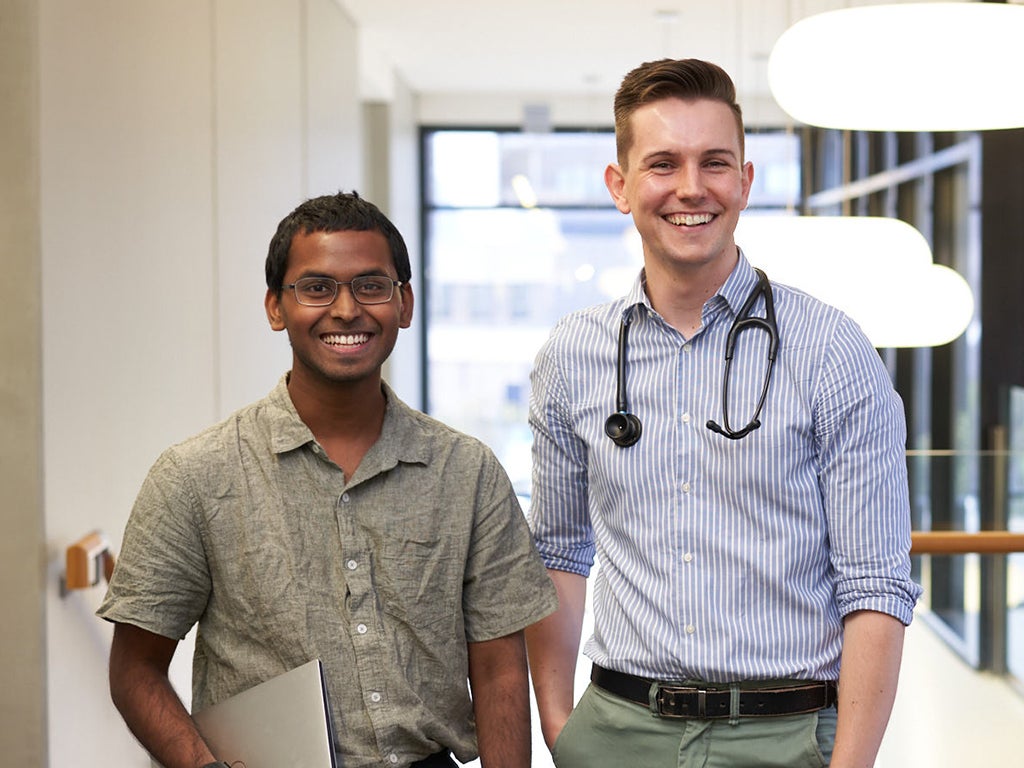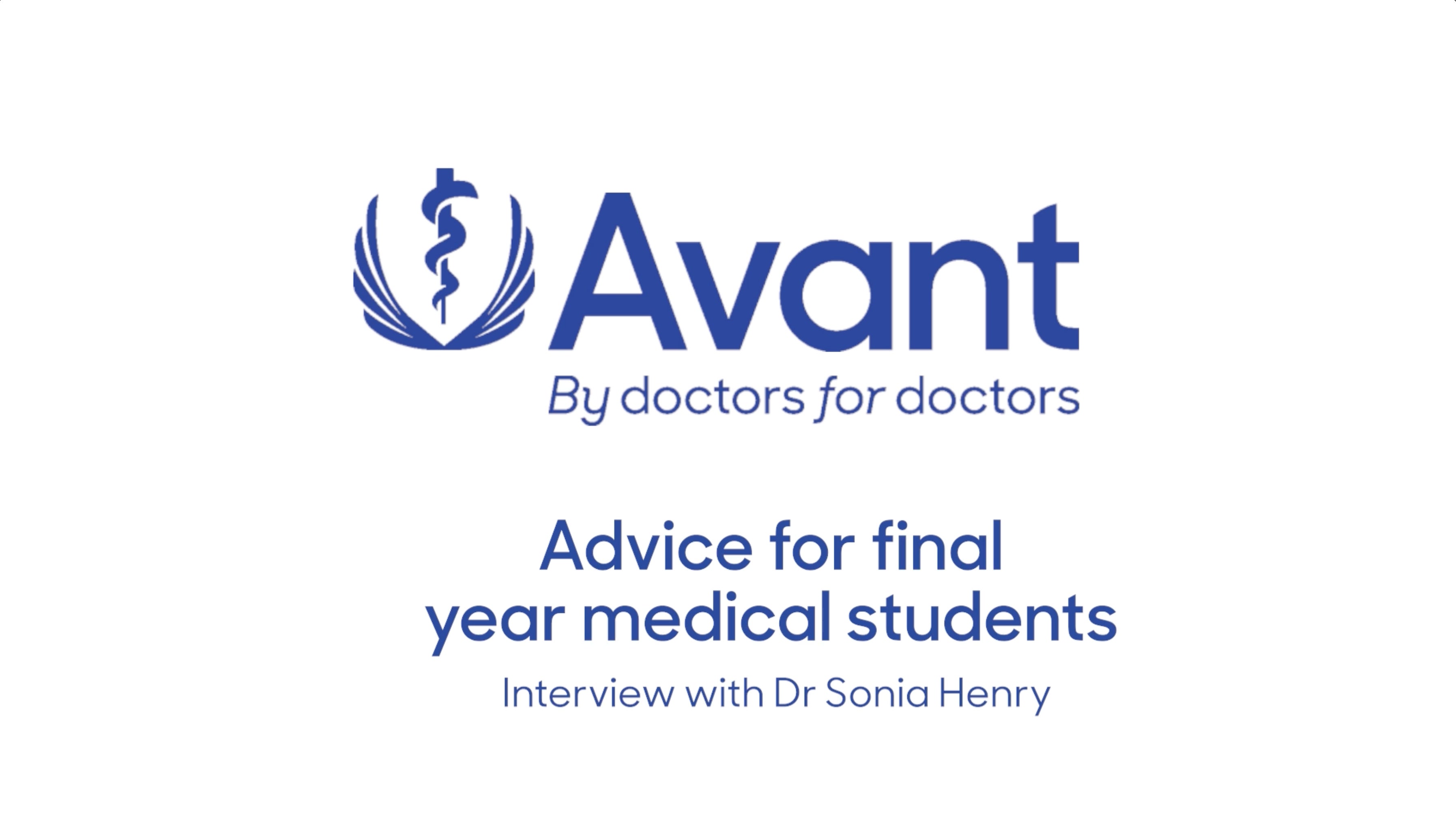Set up a healthy work-life balance for your future as a doctor
Tuesday, 24 September 2024

You’re in your final year of medical school, and you know your pharmacology, your physiology and your anatomy. But what is it you want from your career and your life? Now is a good time to start thinking about it.
GP and author, Dr Sonia Henry, has been there, and she mentors students in her practice, so she knows what it’s like for today’s medical students. Here, she shares some tips on deciding your next steps and maintaining work-life balance.
Plan your future
“Ask yourself now what you want out of your life. If it's to spend 15 hours a day in an operating theatre for the next 35 years, fantastic,” Dr Henry says. “But if it is ‘I maybe want to travel a bit, I maybe want to have a family or write books, or I enjoy acting … and I actually like seeing my friends and family’, then you need to [plan that].”
While preparing for the transition from medical school to internship, it’s a good time to consider your personal and professional goals in the short and long-term.
Your job doesn’t come first
Medical school is challenging, and when entering your intern years and beyond, there will be even more challenges. There’s no doubt medicine can be demanding, with long hours and daily stressors. You may feel you have to put your job first and everything else second, but Dr Henry flips that script.
“You and your life come first, your job comes second,” she says. “It’s this idea of ‘Happy doctor, happy patient’. You cannot be an effective doctor if you are not satisfied or at peace with yourself.”
Create a life outside of medicine. Find your passion, or hobbies that bring you joy, and indulge in the lighter side of life.
Manage stress in healthy ways
With the daily stressors doctors face, it’s important to find stress management techniques that work for you. Not everyone likes yoga, as Dr Henry says:
“I was never one of those people who would get home and go for a run and do a bit of study and do some yoga, then go to bed. If that's what you're telling yourself you have to do, you don't have to. Medicine's already hard enough. Get enough sleep, try and eat relatively healthily.”
Maybe you prefer reading or meditation, playing music or being in nature to unwind. The key is find what works, and do it regularly.
Who are you going to call?
Once your studies are complete and in your early years of medical practice, supportive family, friends, and healthcare providers are important. So is a supportive medical indemnity provider, because they understand what you’re going through.
“If something bad happens at work, call whoever you're insured with. There's nothing worse than going home feeling like you don't know who to tell about it,” Dr Henry says.
Invest in your relationships outside work, too. Social connections help you feel less isolated, especially in tough times. Giving and receiving support, or simply sharing fun times with friends can help us maintain perspective and not dwell on our troubles.
Leave time for you
It’s important to prioritise self-care, so try to do at least one thing for yourself each day to help maintain wellbeing. Even something as simple as cooking a favourite meal, or having an early night to help you sleep better.

Advice for final year medical students
Interview with Dr Sonia Henry
More ways we can help you
The information in this publication does not constitute legal, financial, medical or other professional advice and should not be relied upon as such. It is intended only to provide a summary and general overview on matters of interest and it is not intended to be comprehensive. Persons implementing any recommendations contained in this publication must exercise their own independent skill or judgement and seek appropriate professional advice relevant to their own particular circumstances. Compliance with any recommendations will not in any way guarantee discharge of the duty of care owed to patients and others coming into contact with the health professional or practice. Avant and its related entities are not responsible to any person for any loss suffered in connection with the use of this information. Information is only current at the date initially published. © Avant Mutual Group Limited 2026.



